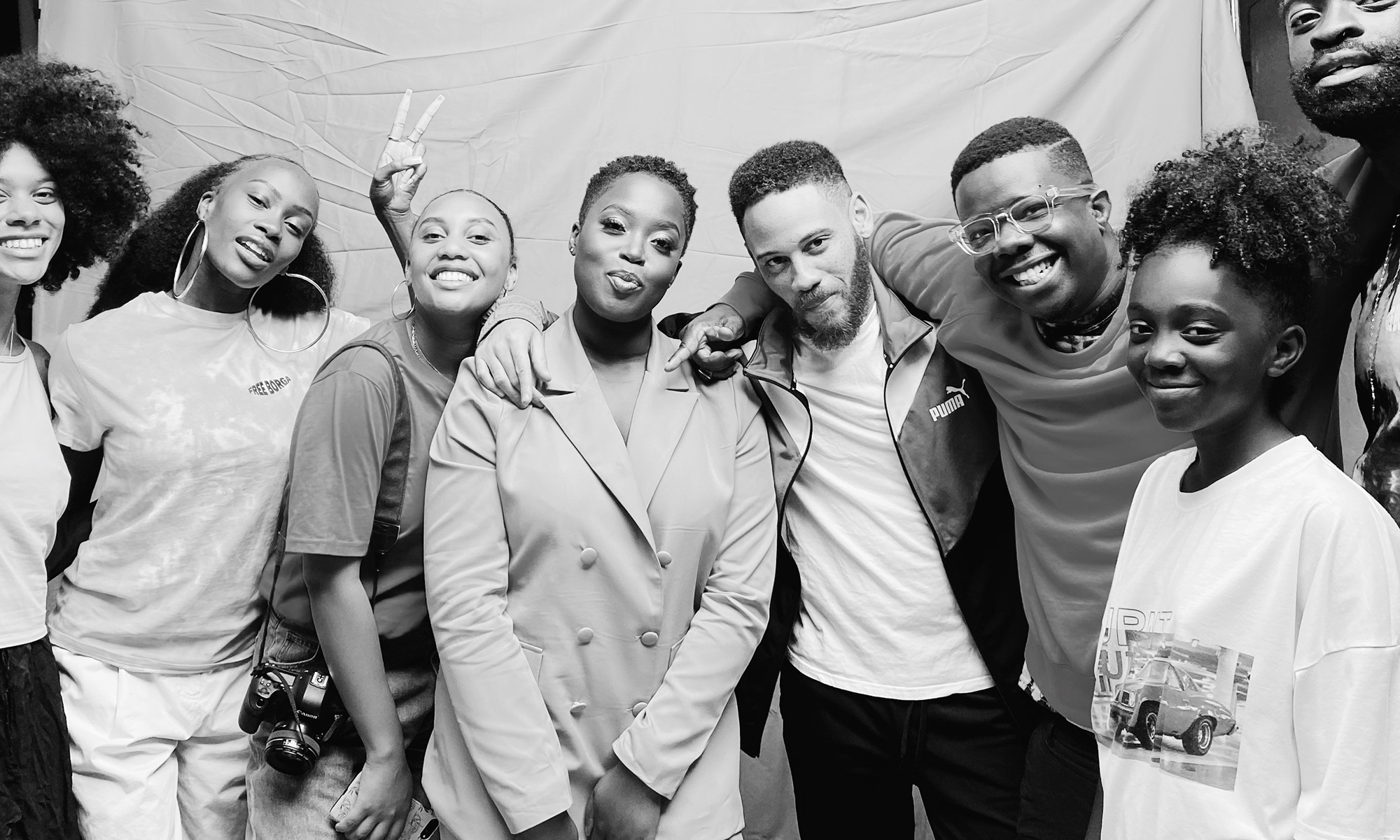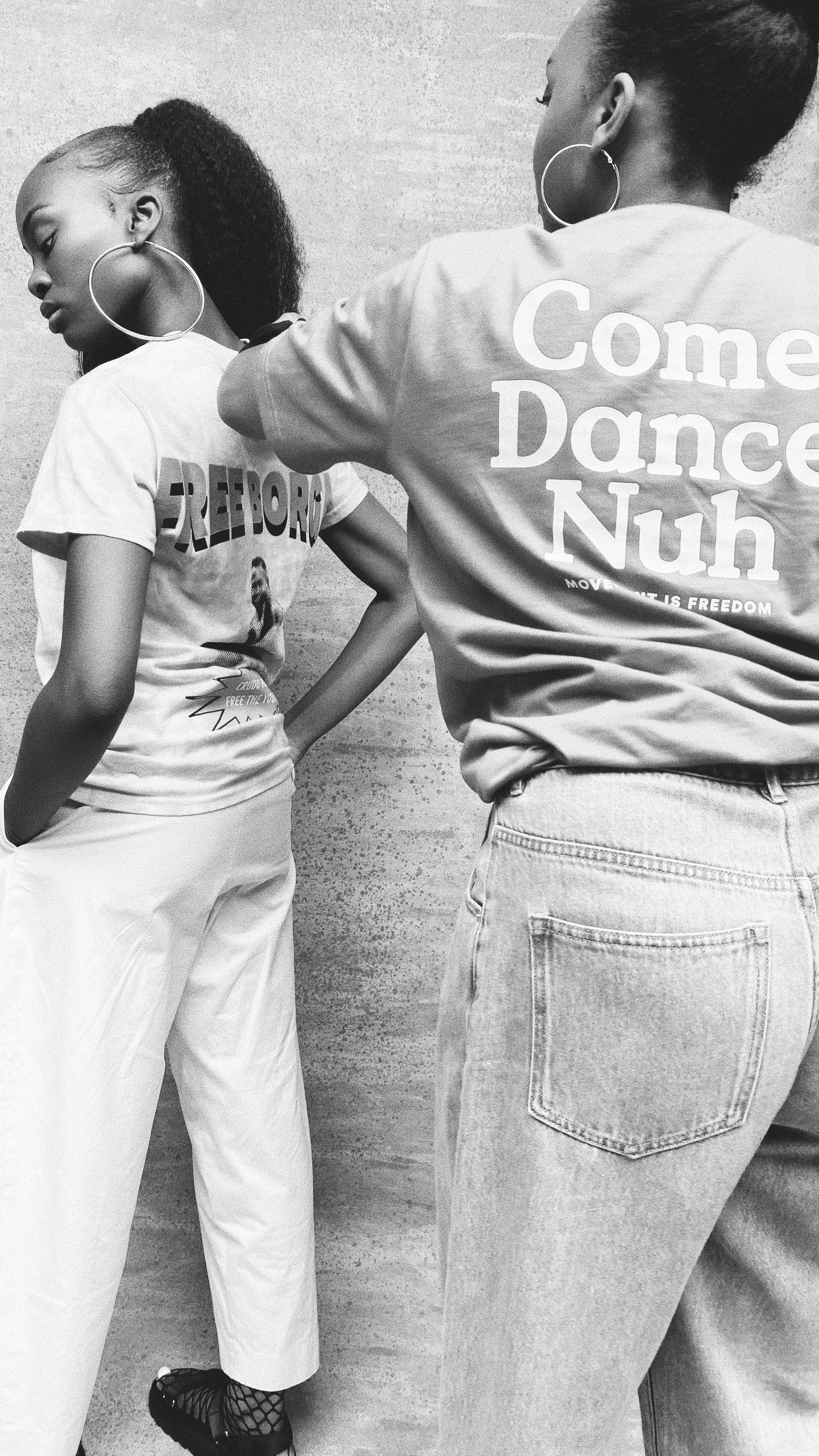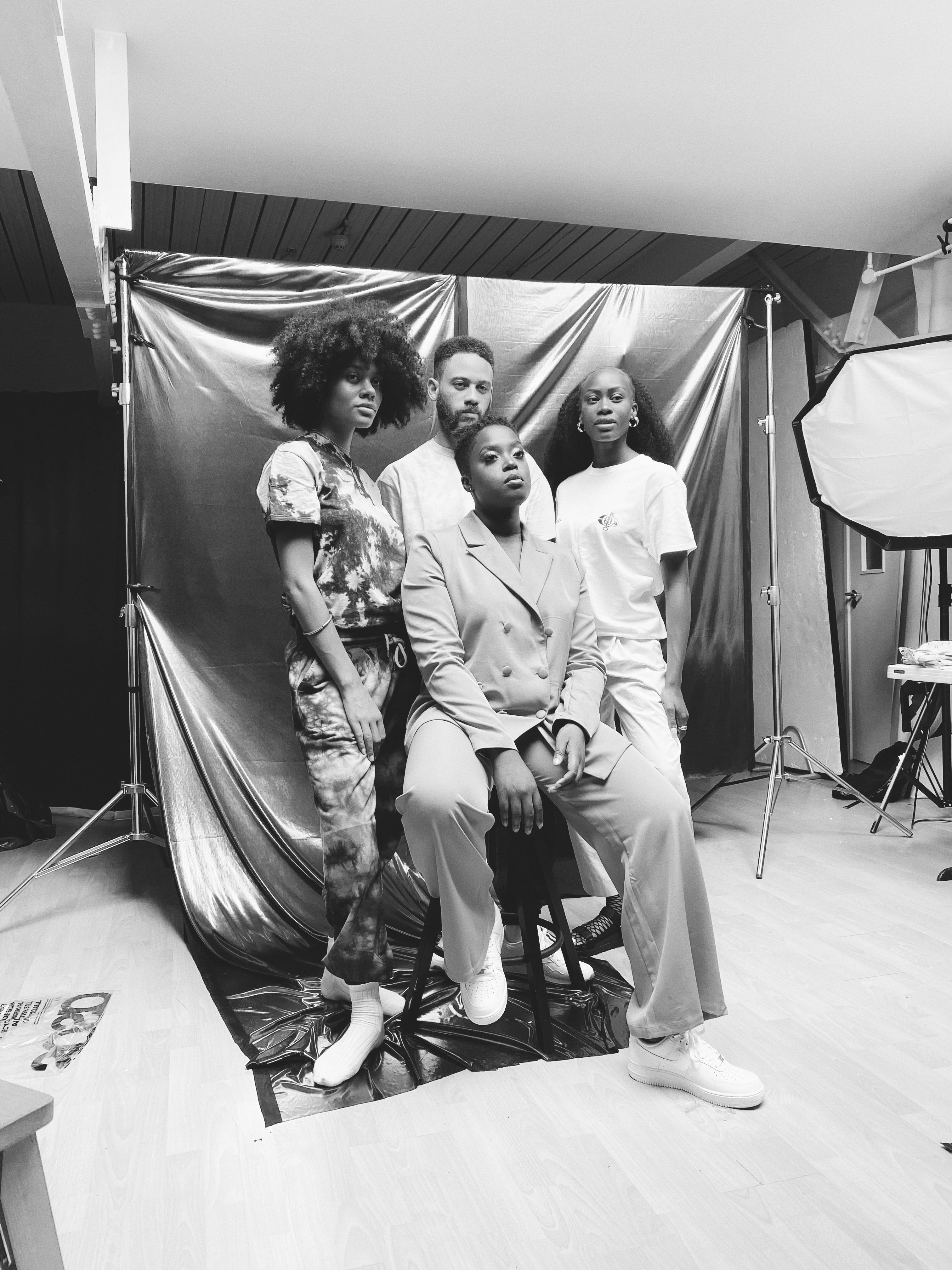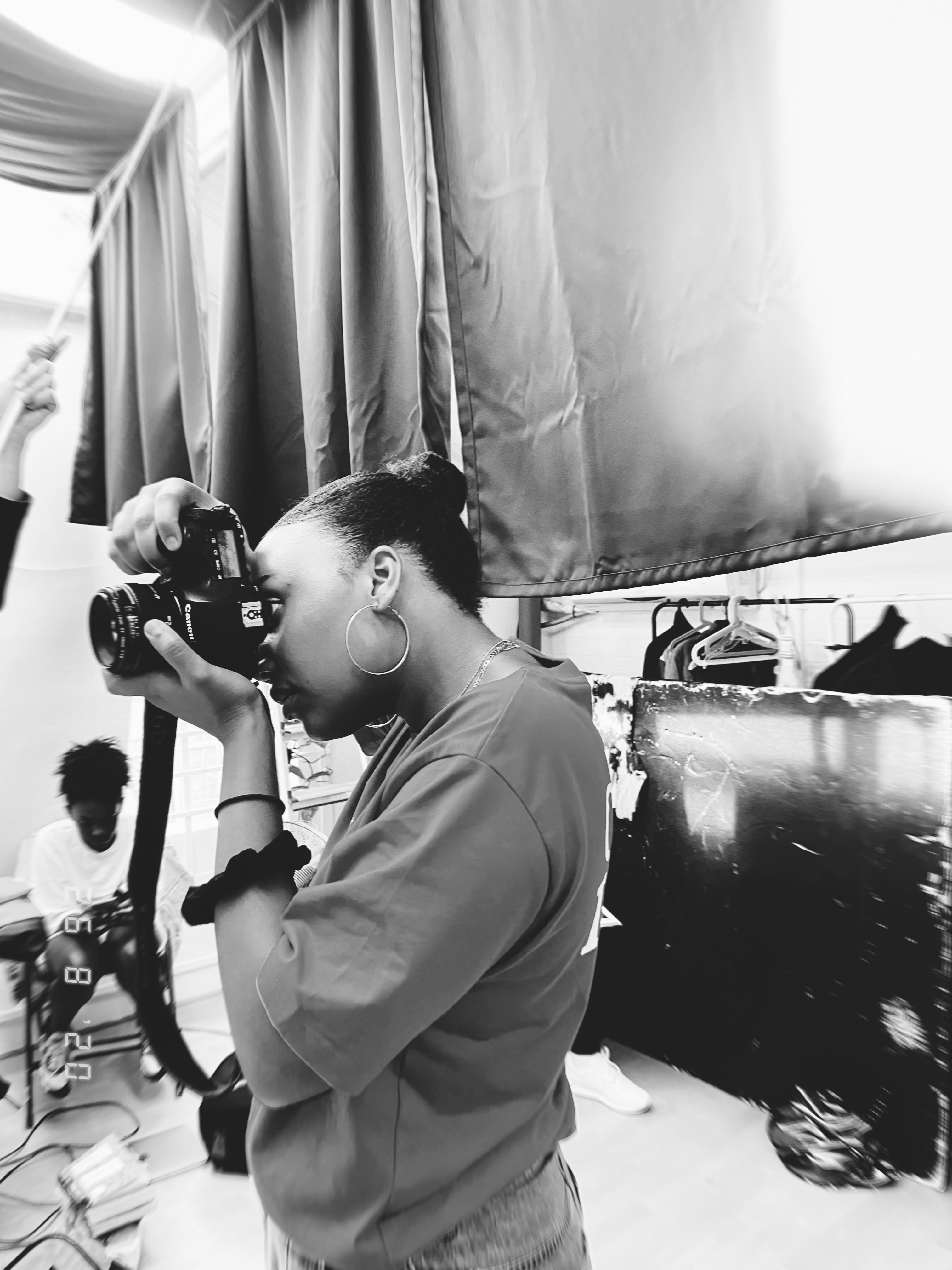"My motive behind this collaboration is to bridge the gap between fashion and music and inspire various sectors of art to work collaboratively for sustainable growth of the creative arts and music industry in Africa and around the world." - Joey Lit, Founder of Free The Youth.
As we approach the end of our takeover, we're chatting with UAL Lecturer, Mikael Calandra, Fashion Designer and the founder of Accra-based brand Free The Youth, Joey Lit, and Writer and Cultural Curator, Christian Adofo about their collaborative project 'Free Borga'.
Tell us about your work ethos – what do you stand for?
I like to think that my work was born out of a necessity. A necessity for mirroring and belonging I suppose. As an immigrant student once you graduate, you realise that your work inevitably exists across multiple economic spaces and historical timelines that are somehow beyond your control yet significant. That sort of self-acknowledgment pushed me to deconstruct my practice and coming to terms with the part I might play in society. My work and consequentially its ethos, was born out of a necessity to exist either in a cacophonic and dynamic city like London but at a same time in a challenging and forthcoming context like African youth culture. So ethically I’m centred on mutuality, contextuality, accountability and innovation. Communicative innovation.
As Creative Director for ‘Free Borga’, how did you initially approach the project? How did the collaboration come about with Free The Youth?
One of the issues that I was aware of from the jump was the presence of strong creative heads across all boards and in that sort of creative relationship, it is quite important to avoid frustrating the process by imposing preferences and directions. I have instead focused more on the process of facilitation and editing making sure everyone was able to produce the best work they wanted to while making sense each individual fitted in a larger delivery. I would say it’s a quite African approach to expression and interaction, if you think of percussive performances for examples. Drummers are not expected to dominate over each but rather enrich and interlock with each other, creating a sense of poly-harmony and liveliness. I also think that we are in a historical context where professional and personal relationships should be participative given the way information is now disseminated. Top to bottom creative hierarchies are completely obsolete.
-

'Free Borga' - Mikael Calandra Achode, Joey Lit - Free The Youth, Christian Adofo
-

'Free Borga' - Mikael Calandra Achode, Joey Lit - Free The Youth, Christian Adofo
-
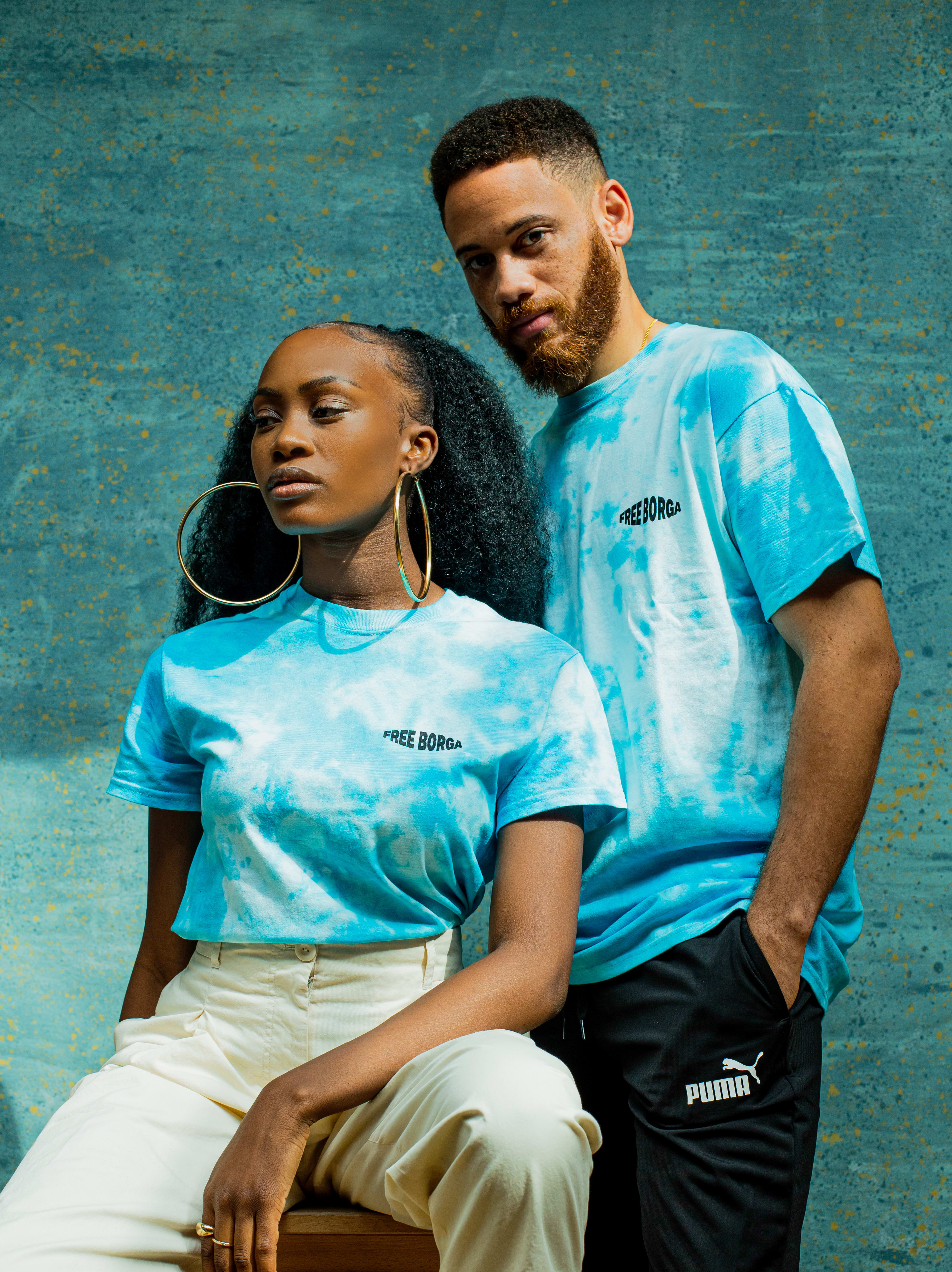
'Free Borga' - Mikael Calandra Achode, Joey Lit - Free The Youth, Christian Adofo
-
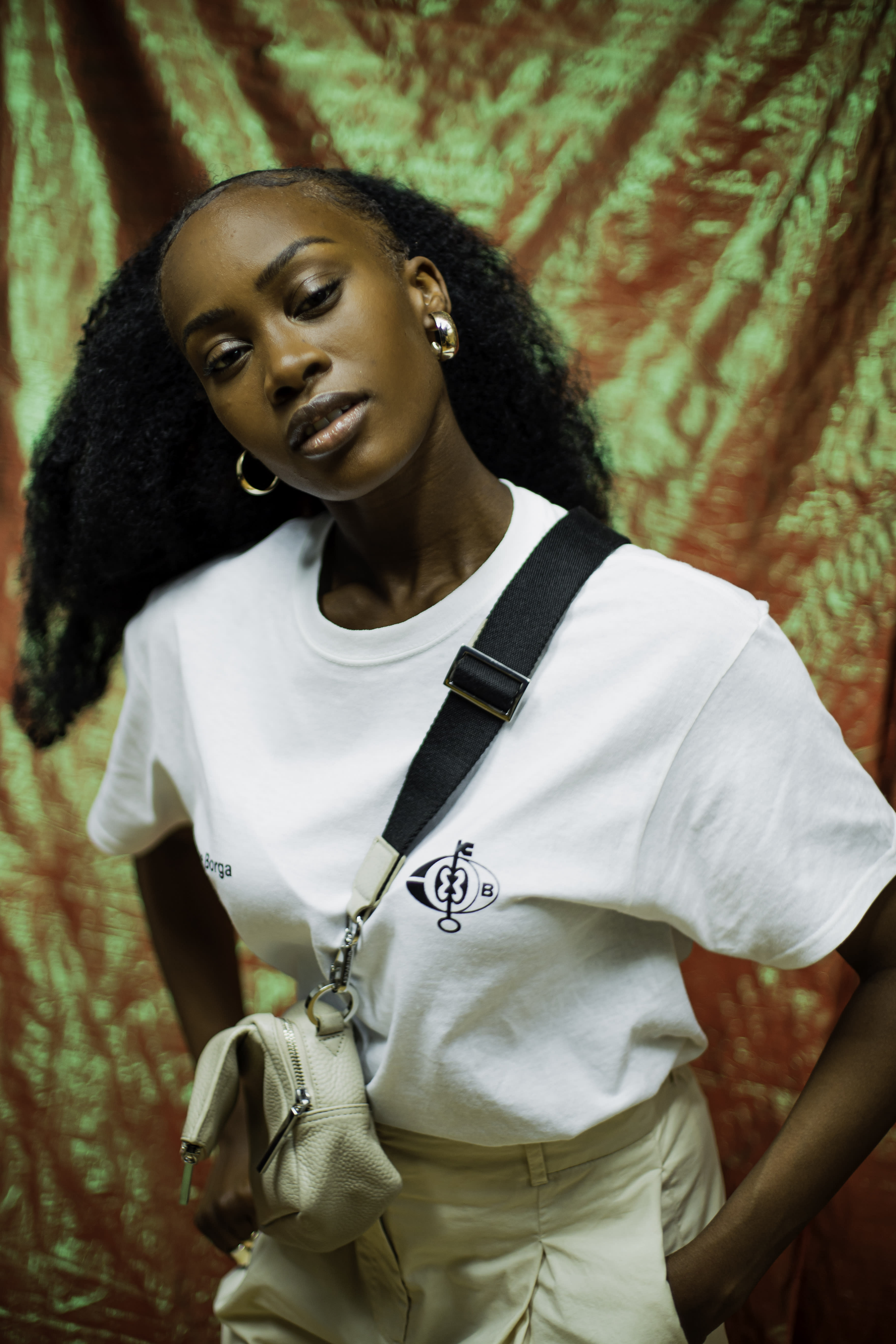
'Free Borga' - Mikael Calandra Achode, Joey Lit - Free The Youth, Christian Adofo
-
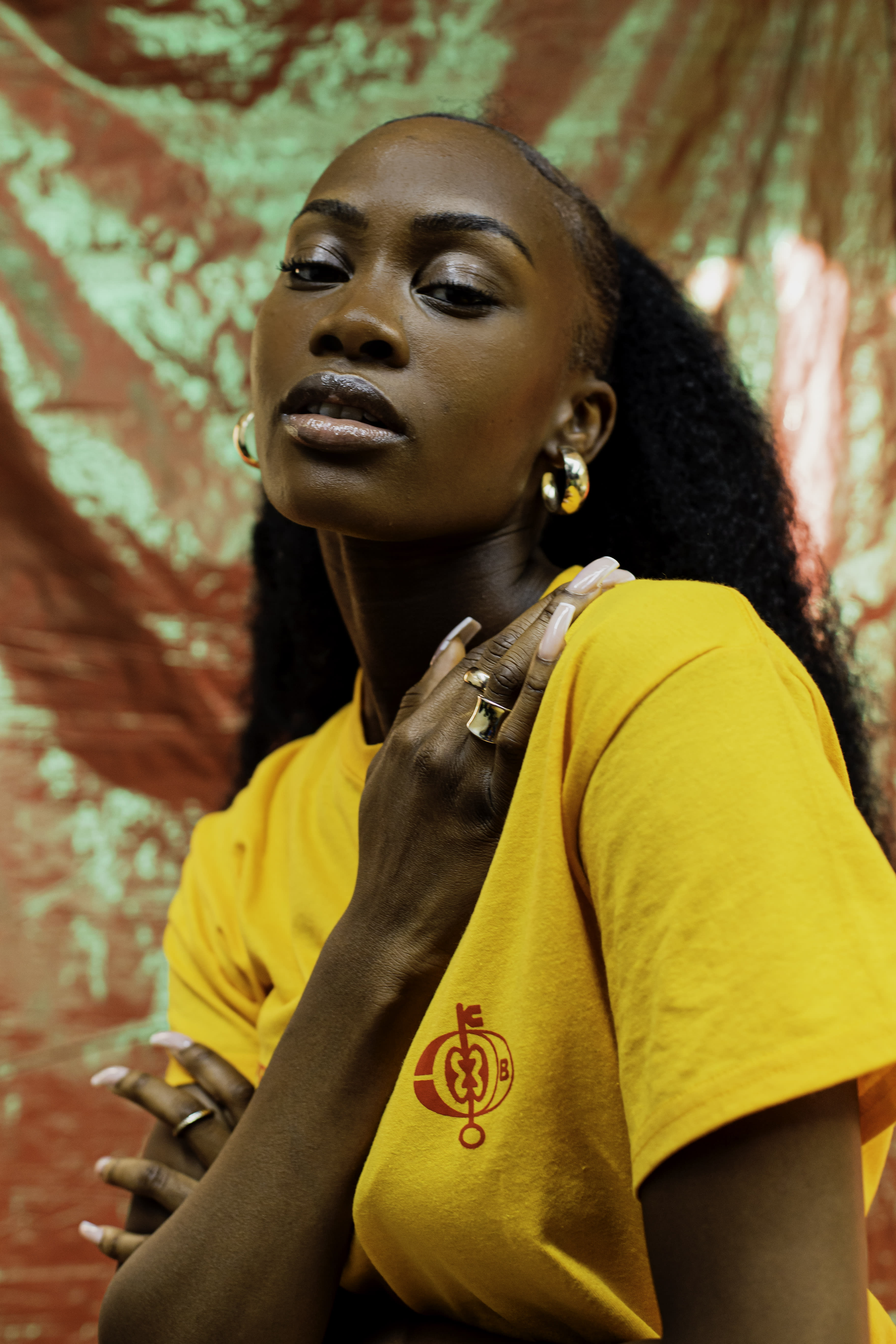
'Free Borga' - Mikael Calandra Achode, Joey Lit - Free The Youth, Christian Adofo
-
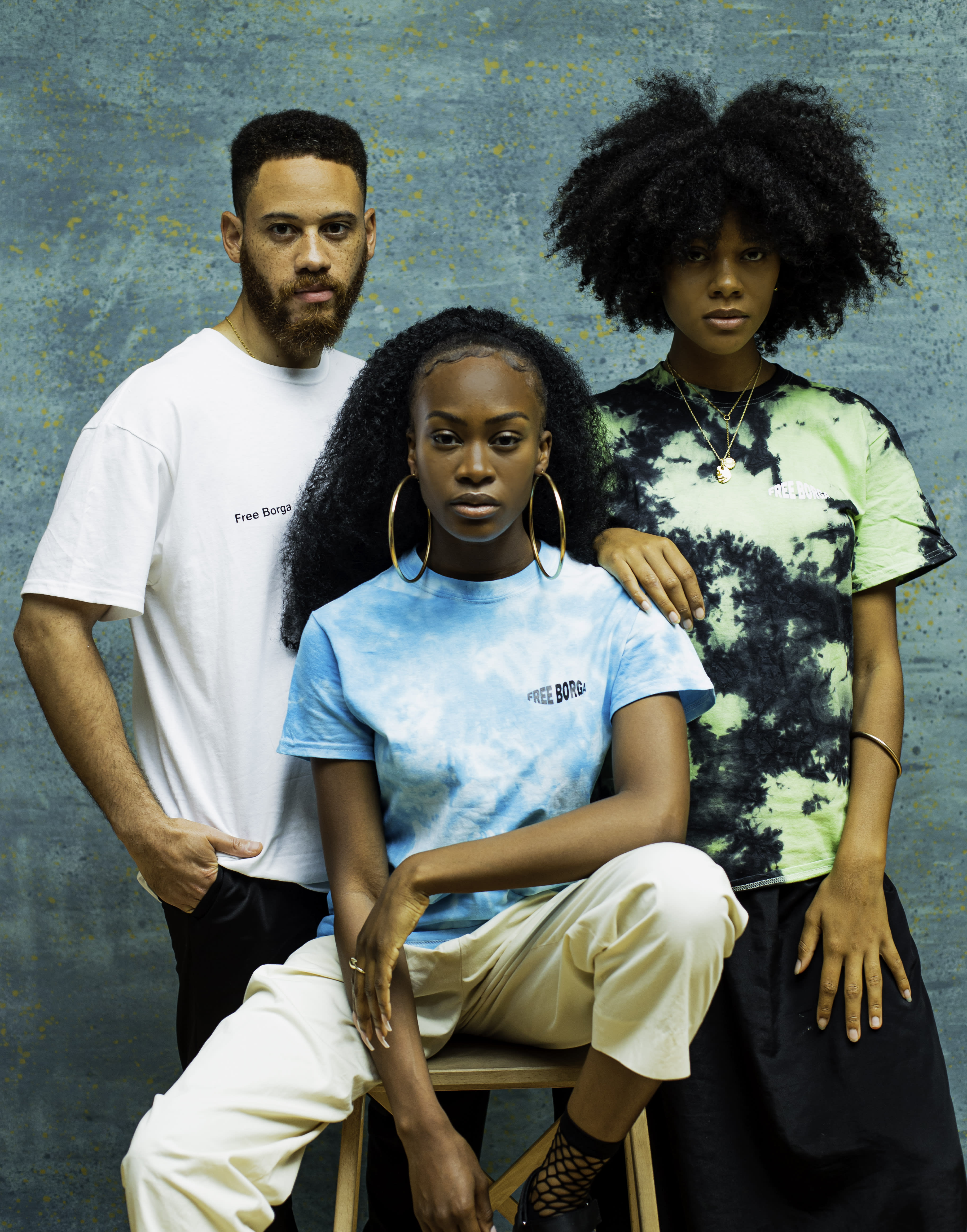
'Free Borga' - Mikael Calandra Achode, Joey Lit - Free The Youth, Christian Adofo
What were your hopes and intentions from this collaboration?
My hope was then an occasion to demonstrate that old territorial models are now obsolete too. And that creative economies and territories can exist beyond geographical boundaries. With that in mind, taste and mutuality might be the new elements that define creative perimeters and contexts. I was also very eager to unite African/Black creatives existing across the diaspora who don’t have many occasion to interact and relate to each other. What languages can do that if not Fashion and Music? Guys what you think?
Joey: My motive behind this collaboration is to bridge the gap between fashion and music and inspire various sectors of art to work collaboratively for sustainable growth of the creative arts and music industry in Africa and around the world.
Chris: Subconsciously the intent was to explore and showcase the synonymous relationship between music and fashion across generations from West Africa to the wider diaspora. In every decade subculture is a reflection of the youth and for this epoch where there is a wealth of information but poverty of attention this project was an opportunity to provide greater context across both mediums of expression.
As creatives, we often find it difficult to ensure our work is perceived in the way we hope. How do you explore sometimes sensitive subjects in your field?
There is always a bond between message and audience. Clarity is the only way to bridge that gap. I never shied away from sharing my thoughts on Africanness or conversation of cultural liberation. These tropes and topics have always been quite at the forefront of my creativity. And I think that level of clarity is achievable only if we produce work that reflect who we are. In that quest for reflection, I think languages and codes play quite a pivotal role in order to have your point across. For example, my work is situated between academia and the creative industries therefore there quite a lot of behind the scenes work to ensure I’m well versed across all languages used in those context to make sure that my story is told in the way I’d like it to hear it. Now conflict is inevitable when we express opinions and ideas; the real struggle begins when we search for tools that can enable resolutions. And resolutions sometimes cannot be found. Breaking silence across all the boards is therefore imperative. In order the hear all the voices. Breaking silence is the only to ensure our work and our story is perceived the way we hope. The clearer we speak, the better.
-
'Free Borga' - Mikael Calandra Achode, Joey Lit - Free The Youth, Christian Adofo
-
'Free Borga' - Mikael Calandra Achode, Joey Lit - Free The Youth, Christian Adofo
-
'Free Borga' - Mikael Calandra Achode, Joey Lit - Free The Youth, Christian Adofo
What do you think about when you hear Black History Month?
It’s a tough one. I grew up in Italy where there isn’t any serious acknowledgement of Black Identities and cultures at any level and when they are briefly touched, they are used as a sort of accessorial and decorative conversations for the interlocutor. Now having lived here for 14 years, I came to understand the historical context that brought the BHM to existence. However, I find it quite difficult to relate to it and its objectives. Nonetheless I understand that Black individuals in this country have been through experiences I cannot comprehend given my historicity and contextuality and those Black citizens possibly thought that a celebration like BHM would have been useful to nourish a conversation for cultural integration. I don’t want to be accepted frankly. My self-love is quite enough and whoever is genuinely interested in my historicity is welcome every day. To cut short, Blackness and Africanness should be celebrated on a daily basis. Our Joy, our beauty, our resilience, our sense of gratitude are so overwhelming that an occasion will never be able to contain them. Also I struggle with the word Black. I’m an African and that construct already is so loaded, but I accept that it’s the heritage I’ve received from my community. Non-whiteness is such a reductive shortcut to our identities as African people. And celebrating that is a bit weird. But I also understand that there are Black individuals in this country that don’t necessarily consider themselves African for plenty of reasons. Chris you were born here, what you make of it?
Chris: A performative and at times asinine navigation of colonial guilt over 31 days.
In your opinion, what next steps do the art, fashion, creative industries need to take to become more inclusive?
Well access in my opinion is the most important and crucial aspect in any industry. Not only access to the market of that economy but access to the engineering of those economies. Enabling marginalised communities to gather knowledge of how those industries work, theoretically and technically. Marginalised communities are often left at the bottom of society and made consumers of resources they actually own. It’s important to guarantee access to resources, to markets but most importantly knowledge of the processes and infrastructures of production. Inclusion start from access and agency and that’s the only way forward. A young person in Accra, in Lagos, in London or in Beijing should be enabled to understand how things work around her or him and offered a possibility to have a go with what she or he has learned. And valuable education can offer that I believe. Guys what do you think?
Joey: In my opinion, the art, fashion and creative industry need to build more infrastructure where creatives can connect with others and also exploit their talent. There should be more spaces where creative can be employed and generate income for their creativity. Lack Infrastructure is the main reason why this industry is not flourishing and due to that others are not motivated to be a part of it.
Chris: Nepotism must die.
Oh yes. Very, very important.
